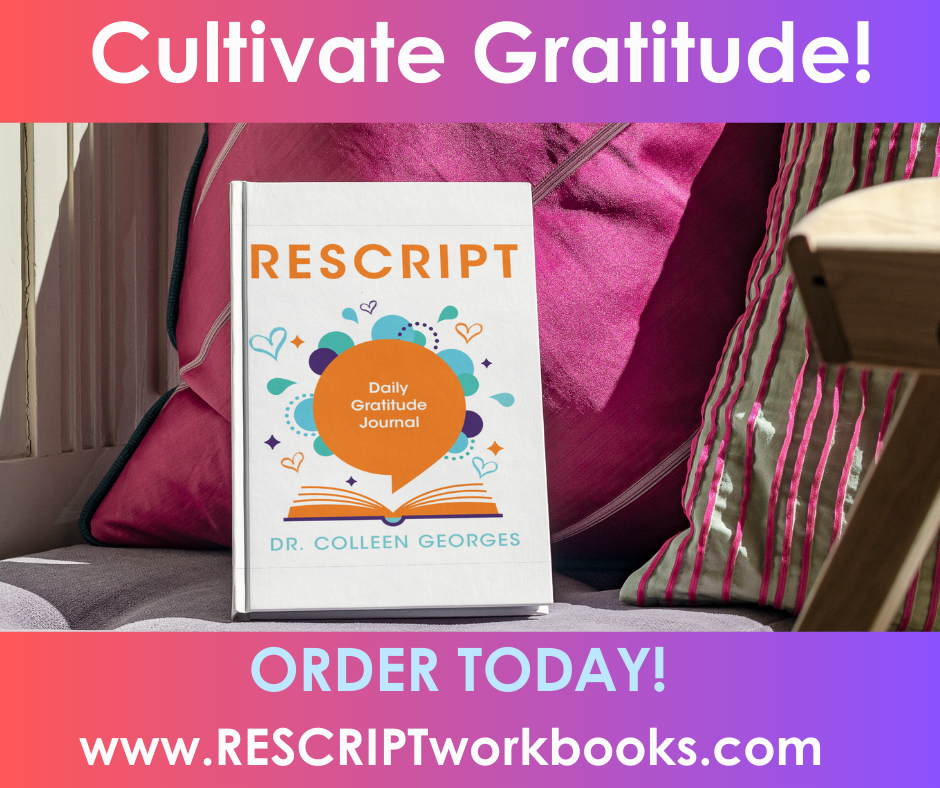|
Work/life balance is one of the things that seems to elude us the most in life. From early on, we are asked what we want to be when we grow up. It doesn’t take long before so many of us begin to see that who we are is somehow equal to what we do for a career. And, in this expensive world and lean workforce, it’s not surprising how work takes over so much of our lives.
As someone who is blessed to truly love my work, I very much relate to my career being a big part of my identity--for many years, perhaps too much so. Not unlike many other folks, I spent most of my adult life as a workaholic. However, I never saw it as a problem since I love what I do. However, whether you love your work, like it, or simply tolerate it, we ALL need recreation, relaxation, and down time in our lives. One of the top things clients come to me to work on together is taking back their time and creating more work-life balance for themselves. In addition to helping people find jobs that engage their strengths and passions more, I also love helping clients create self-care routines, set personal and professional boundaries, and make their own wellbeing – physically, mentally, and emotionally – a priority. I love helping people create more joy and peace in their lives while simultaneously not giving up their career dreams and accomplishments. We can have a strong career identity AND create time for nurturing ourselves and our important relationships. I’m also a big believer that as a life/career coach, a key part of my job is walking my talk. So, over the last few years, I’ve worked to become a person who makes my joy, peace, and relationships a top priority, while still loving my work and being the best life/career coach and educator I can be for my clients and students. But, this has required important changes in my work and life. Creating routines and habits has been crucial. I wrote quite a bit about this in an end of year blog post in 2021. I now have morning, evening, daily, and weekly routines that incorporate things like exercise (morning treadmill and afternoon walks), audiobook reading, and connecting with family/friends. I listened to 32 audiobooks this past year and learned a lot of great personal growth strategies and ecological information. Those books included, Ecology, The Hidden Half of Nature, The Secret Wisdom of Nature, The Heartbeat of Trees, Your Guide to Forest Bathing, The Joyful Vegan, Unlocking Happiness, Atlas of the Heart, Designing Your Life, The Mental Toughness Advantage, 21 Great Ways to Get the Job You Really Want, Today Matters, The Happiness Blueprint, How to Consciously Design Your Ideal Future, Success Secrets, How to Be More Intentional With Time, Subconscious Mind Secrets, How to Decrease Burnout & Increase Joy, 4 Ways to Stop Self Sabotage, The Art of Discipline, The Success Blueprint, You’ve Already Changed Your Life, You’ve Got This, Resolutions in the New Year or Any Time, Start Living Your Dream Now, The Unstoppable Mindset, How to Be Unstoppable, How to Stay Focused, An Effective Life, This Year Will Be Different, Winning in Life Now, and The Art of Doing Less. With the help of my coach, I’ve also established set coaching session times, business prep times, and teaching prep times, as well as shut down times for when I cease working for the day. I schedule everything in my Google calendar - I create recurring meetings for my activities in my morning routine, my daily walks, email writing and responding, and class preparation. I create established blocks for client sessions and calls. I leave open blocks for fun activities to schedule, extra work projects, and passion projects. Every Sunday, I create my To Do List for the week and schedule in any additional personal and professional activities and projects for the week. I even schedule in time to call and text the people I love. I treat my relationships, passions, and fun with as much priority and respect as I treat my work. It’s a massive shift from how I used to live, treating everything like an emergency that needed to be dealt with right now at the expense of my schedule, time, and wellbeing. This so frequently left me feeling incredibly burnt out, frustrated, and exhausted. By seeing what I have on my plate in my calendar, it makes it easier for me to set boundaries, say No to things I simply don't have time for, and better schedule when I feasibly can do the things I both need and want to do. I still make adjustments for emergencies as needed, I just no longer treat everything like its an emergency. Helping my clients to also create these kinds of routines and habits in their own lives so they too can reclaim their time and wellbeing brings me so much joy. In 2022, I was blessed to work with 114 amazing clients. I got to help clients with a wide variety of personal and professional goals and see their pride in making important decisions, changes, and transformations. It’s such a gift to celebrate my clients’ successes with them. I also made ample time for joy outside of work. It was a year of many amazing personal experiences. I visited 20 parks this past year with family and friends, 11 new ones (Natirar Park, William Warren Park, Lord Stirling Park, Hunterdon County Arboretum, Nomahegan Park, Ann Van Middlesworth Park, Loantaka Brook Reservation, Greenwood Gardens, South Mountain Fairy Trail, Great Swamp National Wildlife Refuge, and Bushkill Falls) and 9 I’d been to previously (Colonial Park, Ponderosa Farm Park, Duke Farms, Bicentennial Park, Reeves Reed Arboretum, Rutgers Gardens, Leonard J. Buck Arboretum, Laurelwood Arboretum, and Mountain Springs Lake Nature Trail). Many of the parks I visited, I did so with my son, nieces, and nephew once a week over the summer. After suffering some major family losses, I wanted to spend as much time with family as possible. These weekly park visits with the kids were one of the greatest highlights of my year and I can’t wait to make it an annual tradition. I also spent a lot of wonderful time with my parents. We traveled to some parks, went to a few Fall Farm Festivals, and checked out a Jazz Festival. And, sometimes, we just spent time having lunch at their house and talking. All of it was a gift and a joy. I made time for some lunches, dinners, and hikes with friends too. In particular, my friend Janice and I committed to monthly adventures together, which included a Fall Festival, a visit to Peddler’s Village, a couple lunches at this cute tearoom, and a really wild event – The Alice in Wonderland Experience! And, with my great love for Halloween, I’m happy to say that I went to 5 Halloween scare attractions with family and friends (Six Flags Fight Fest, Scary Rotten Farms, Scare Farm, Haunted Red Mill, and Dunellen Haunted Trail). With my husband and son, we took a vacation to Puerto Rico, Florida/Disney World, the Poconos (twice, but two different locations), Wildwood Beach in a pack of 13 of us (all family), Point Pleasant Beach, and Asbury Park Beach. We went on 9 different roller coasters at 3 different amusements parks. And we went to New York City twice to see Lion King and STOMP. But, the two most AWESOME things we did together this past year were two firsts: hiking Bushkill Falls where we saw several majestic waterfalls and going ziplining at Treeventures (9 total ziplines)! Finally, this was a year that stirred a new interest and passion for learning about ecology and the natural environment. This led to attending 6 Environmental Education Events, including an Autumn Dendrology Workshop, Big Tree Hike, Wildflower Walk (All at Duke Farms) and 4 Night Hikes (2 at Duke Farms and 2 at Lord Stirling Park). In late January and early February of 2023, I’ll be going back to school purely for fun and my own personal interests. I’m starting the Rutgers Certified Environmental Stewards Program and Duke Farms Certified Master Ecologist Program. No career goals attached, I’m simply craving the learning and environmental stewardship of the experience. The amazing thing is that all of these incredible non-work experiences and connecting with people I love didn’t stop me from continuing to love and engage in my work as a coach and educator. I got to have both. Actual, legit work/life balance. I plan to keep this up for the long haul, as I feel so much healthier in every way. I feel clearer, calmer, more focused, and more joyful. And, I plan to continue helping my clients achieve their own customized work/life balance. You deserve both personal and professional joy. Here’s to exciting life and career adventures in 2023!
0 Comments
2020 was pretty crappy. So, I really wanted to make something good out of 2021. I went into this year with a shit-ton of motivation. I knew there would still be a lot of rough stuff going on out there and there was plenty I couldn’t change. I also knew that there were things I could change. I could help my clients make career and life changes that would bring them more joy and balance. I could connect with and help out the people I love. And, I could get ahold of my own challenges and face them head on. Here’s what came out of my personal journey of transformation.
Prioritizing Health & Wellbeing 1) Giving Up Alcohol: If you’d told me in December 2020 after my latest delivery of wine arrived at the house that on January 9, 2021, I’d give up drinking alcohol, I’d have said you must be crazy. For a couple years, I’d been drinking a glass of red wine every night. Faithfully, at 8pm, I’d go in the kitchen and pour. It was my day’s end, let’s relax now, gift to myself. Over time, I bought a larger glass that could handle more wine and filled it to the brim. With more time, I’d begin thinking about my nightly glass of wine earlier and earlier in the day, wanting 8pm to just come faster. I convinced myself it helped me sleep and was good for me, ya know, warding off heart disease and stuff like that. But underneath it all, there was a truth I knew—I was craving it and relying on it and that seemed super adjacent to addiction. In January, I decided to quit it. What a journey. My body had forgotten how to sleep without it. I was waking up an average of 4 times a night. I tried various supplements from the health food store and replaced the wine with tea and other healthier drinks before bed. After a few months of sleep issues (AKA withdrawal), my body adjusted and now I sleep beautifully. I’m almost one year alcohol free. 2) Eating Mindfully & Intentionally: Like a lot of folks, food became a primary vice for me in 2020. Really, it was always a vice. Between 2019 and 2021, I’d gained quite a bit of weight and was just feeling lethargic and physically uncomfortable. I knew I needed to do something, but I also knew it had to be very different than the somethings I’d tried in the past. This time, it couldn’t be all about weight, it had to be about health and long-term wellbeing. My mom has always been an amazing role model for maintaining her health and still does so at the age of 71. Because of her, I knew that starting a long-term health habit at 46 was genuinely possible. I chose an easy way for me to begin—Nutrisystem. It had worked for me in 2018 (then I gained it all back and then some in 2019 and 2020). I knew this was only a starting point. I’d need to learn how to eat mindfully and intentionally and teach myself about nutrition so I could sustain any positive outcomes and long-term health. I started using a food tracking app to begin eating with intention and create accountability for myself. I took some courses in health and nutrition and I learned. I read about protein. I made water and vegetables my friends. I mainly just drink water, tea, and unsweetened iced tea, as I gave up soda in 2018 and coffee in 2019. I taught myself about red and green superfoods and supplements. I created a daily supplement regiment to make sure I was getting what I need. I created eating routines and paid attention to my hunger so I could avoid mindless eating. I was eventually able to transition from Nutrisystem to my own system because of all I learned. In the past, I’d never sustained thoughtful eating for more than a few months. I’ve been eating mindfully and intentionally for close to a year now. 3) Taking a Walk a Day: I’d never been fond of exercise. Each time I tried any form of it, it never lasted long. I just didn’t like it. It filled me with dread, not joy. However, I knew that true health and wellbeing could not come from changing eating habits alone. I had to incorporate exercise. The only form of exercise I’d ever liked was walking. When I walked, it had never been in an effort to exercise, it was because I absolutely love nature. I can get lost in trees, flowers, grass, sky, wind, and animals. Making walking my form of exercise was worth a shot. So, on January 22, I started taking a walk a day. Immediately, I noticed a boost in my sense of peace and joy. This made the physical aspect of it much easier. I quickly became hooked. While I’ve missed a day here and there, I’ve taken at least a daily 30-minute walk nearly every day this year. I joke that walking is totally my new wine. I think about it as soon as I wake up, I crave it, and I rely on it for my overall wellbeing. 4) Losing 42 Pounds: The eradication of alcohol, mindful eating, and daily walking culminated in losing 42 pounds. I’m proud of this outcome, but prouder that I maintain the habits that helped me achieve it because the habits have become more valuable to me than the loss of weight. The habits have transformed my life and my wellbeing. 5) Discovering the Wild World of Mushrooms: During my self-education on health and supplements, I stumbled across literature on the Lion’s Mane mushroom, great for the mind, mood, immunity, and more. Lion’s Mane led me to Cordyceps, then to Turkey Tail, Shiitake, Maitake, Reishi, and Agarikon. I’ve read books and articles on fungi and watched documentaries, including Fantastic Fungi, discovering Paul Stamets and Host Defense. Mushrooms each have their own unique magical benefits. I take a regiment of mushroom supplements each day and feel better than ever before. 6) Becoming Vegan: My dad was a Vegetarian for many years. He had read about the treatment of animals raised for food and decided he could no longer eat meat. While I continued to eat meat myself, I always admired his decision. I tried to eat vegetarian about 3 or 4 times throughout my 20s, 30s, and 40s. I never made it more than 3 months. I’d eventually crave a pork roll, egg, and cheese sandwich or chicken parmesan, give in to my craving, and be done with it. Having sustained positive eating habits through 2021, in August, I decided to give it a go again, feeling like I was genuinely ready to give up meat and fish. Quickly into this journey, drawing a lot of inspiration from a client who has been a Vegan for 15 years since her childhood, I decided to take it to the next level and go Vegan, letting go of dairy and eggs. It’s been over four months now and I gotta say, it’s not nearly as hard as I expected. I’ve found many awesome meat substitutes, fabulous vegetable and plant-based meals, and great Vegan snacks (I love snacks!). I’ve also found that most restaurants have Vegan options. Developing a Morning Routine 7) Starting the Day on the Treadmill: I’d tried the treadmill thing before. Even kept it up for two months once. But alas, I wasn’t consistent and always stopped. However, I knew I wanted to start my day by getting my blood, brain, and energy flowing and the treadmill seemed like a good way to do that. 15 minutes first thing each morning after I brush my teeth, wash my face, put in my contacts, feed the cats, and pack my son’s school lunch. That’s it. I’ve barely missed a day since I began on February 2. It starts my day with positive energy and motivation. 8) Reading (or Audio-booking) Each Morning: I always wanted to be “a reader.” People often just assumed I was because I went to school for such a long time, lol. But, really, I would just read parts of articles and pieces of books here and there without ever finishing much of anything. I blamed it on a short attention span and gave myself that as an excuse. Inspired by several clients who were avid readers, I began a habit of reading every morning for 15-30 minutes on February 21. I didn’t really think it was gonna stick because it hadn’t any time before. But, strangely, this time, I loved it! In the beginning, I could spend hours each day reading. I realized my busy schedule couldn’t sustain that, so I decided 15-30 minutes was manageable. I currently vacillate between books and audiobooks, but reading is now part of my daily morning routine. I gravitate toward personal growth and books about trees, plants, and mushrooms. In 2021, I read 31 books. I think my previous annual record post-grad school was two, lol. My 2022 goal is a manageable one book a month – already have them picked out! Here’s the 2021 reading list: The Success Principles, You Are a Badass, The Subtle Art of Not Giving a F*ck, The Confidence Code, Your Time to Thrive, Mindset, Success is a Choice, The Science of Self Talk, The Four Agreements, Eat That Frog, Miracle Morning, Atomic Habits, Small Habits Big Changes, 15 Secrets Successful People Know About Time Management, 5-Minute Self Discipline Exercises, Think & Grow Rich, The 4-Hour Work Week, Switchers, Anti Racist Ally, How Women Rise, I Thought It Was Just Me, Gifts of Imperfection, Daring Greatly, Rising Strong, Braving the Wilderness, Dare to Lead, Buddha’s Brain, No-Nonsense Buddhism for Beginners, Forest Bathing, The Hidden Life of Trees, and Entangled Life. 9) Eating Breakfast Outside: Even now in 20-something degree weather. I started this part of my morning routine in the summer when it was warm. I found that eating breakfast outside while watching the birds, squirrels, and our neighborhood foxes brought me peace and joy. I loved starting my day in nature. Once it got cold, I kept it up, now I’m just wearing a fluffy robe. Facing Fears 10) Reclaiming Roller Coasters: I loved roller coasters as a kid, teen, and young adult. At the age of 4, I loved to go on Space Mountain in Disney World with my dad. In my teens, I loved the Loch Ness Monster and Big Bad Wolf in Busch Garden, VA. In my young adulthood, I loved everything at Six Flags. Until the age of 25. My ex-husband and I used our Six Flags season passes to check out the new roller coaster, Nitro, in 2001. I was psyched as always. I can’t really say why or what happened, but I remember beginning to freak out during the climb. The whole ride is a blur, but somehow it traumatized me so much that in the 20 years that followed, I only went on little piddly runaway train like coasters. After 20 years of roller coaster love, I just swore them off. My husband and son love them though. They go on everything. For the last 7 years, while they went on roller coasters, I held the bags and drinks and sat on a bench. But, I wanted to connect with them in their coaster adventures. In July of this year, I decided no more letting fear block me from joy and connection. I wanted that old thrill I once felt back again. I decided to face this 20-year fear through a modified version of systematic desensitization. I started with coasters one level up from a runaway train. Once I survived that, I went another level up. Then another. My heart palpitated before each new ride. I did breathing exercises and pep talked myself to get me through it. Each time I calmed myself just enough to push through and just do it. By the end of the year, I’d gone on 12 new roller coasters. I went on ones that go backwards (Sidewinder), ones that turn you face down like you’re flying (Superman), ones that stand up (Green Lantern), ones that spin (Joker), inverted ones (Great Bear, Talon, Batman), floorless ones (Bizarro, Hydra), ones that launch you 0 to 72 mph in 2 seconds (Storm Runner), ones with 97-degree angle drops (Fahrenheit), and wooden ones (Thunderhawk). I even went on a water tube ride where a trap floor drops out from under you and shoots you straight down (Snake Pit). And every time, despite the initial fear, the ride was exhilarating! I got to feel that thrill I used to have each time. Can’t wait to see which ones we go on in 2022! 11) Driving into the Unknown: In my 20s, while sitting in traffic, a car struck me in my driver’s door, tossed my car (and me) into a triple roll over, landed me several car lengths away in an intersection, and totaled my car. Following that experience, my pre-existing love for driving disappeared. I fought panic attacks while behind the wheel for years, which I overcame, only to be struck from behind while sitting in traffic three more times in my 40s. I’ve tried to keep my driving close by and only to places I know for the most part. I don’t freak out in the car, unless on specific bridges, on the Garden State Parkway (too many lanes, too fast), at driving circles (it’s an NJ thing), when I need to get over multiple lanes quickly, or when unsure where I am and where to turn. I’d really missed how much I had loved driving. I was once fearless and adventurous. I decided to push myself to drive into the unknown more often this year. I drove to a lot of new places I didn’t know how to get to and when a trigger situation (like those mentioned above) presented itself, I did breathing exercises and talked myself though it (“You’re okay, Colleen. You got this.”). I kept my trips to a max of 45 minutes away. In 2022, I’m going push to an hour away. Facing this fear and trusting my ability to be resilient has made me feel more independent and stronger. Embracing Authenticity 12) Letting Go of the Mask: I don’t mean the COVID mask – still wearing that! I actually mean makeup. I still wear it, just not every day. I started wearing makeup at age 14 in 1989. I haven’t ever stopped except for one year – 2002 – 2003, where I decided to see if I could love myself without it. Turns out I do, lol. But, from 2003 to 2021, anytime I go out or I’ll be seen online (Zoom, Skype), I wear it. I’ve always held a belief that I look tired and sick without it, so it embarrassed me to not wear it around others. I don’t even know why, but in October, I decided to see what it would feel like to go out to the store without it. It didn’t feel weird. Perhaps the COVID mask covering half my face mitigated the discomfort. So, I decided to take some of my daily outside walks without makeup. Also felt fine. So, I went out without it again, and again. Then, I went make-up free on Zoom to teach and in client sessions. Also didn’t feel weird. I’ve gone a couple week stints without wearing it. Then, sometimes I wear it if I feel like it. But, I’m happy to not need to makeup mask and let it be a mood choice. I feel just as good without it now. Finding Joy 13) Adventuring & Connecting at Parks, Hiking Trails, Gardens, Woods, & Lakes: Developing a love for walking made me crave more and more of it. I wanted to find new places to go. I wanted to experience more of nature’s beauty. I began researching parks, hiking trails, gardens, woods, and lakes. I made a list of places I wanted to adventure to. I also turned these trips into a time to connect with the people I love, including my son, husband, parents, and friends. We went lots of new places – 10 gardens/arboretums, 8 parks, and 3 additional hiking trails, including two pieces of the Appalachian Trail! Instead of sending my son to camp this year, I told him he would be attending “Colleen’s Nature Camp.” For all of us who went on these adventures, it was a wonderful time to connect with one another while soaking up all of the beauty God has created for us. Here’s the full 2021 visit list: Duke Farms, Leonard J Buck Gardens, Laurelwood Arboretum, Willowwood Arboretum, Rutgers Gardens, Frelinghuysen Arboretum, Cora Hartshorn Arboretum, Rutgers Ecological Preserve, Reeves-Reed Arboretum, Cross Estate Gardens, Watchung Reservation, Bicentennial Park, Colonial Park, Cheesequake State Park, Echo Lake Park, Washington Valley Park, Johnson Park, Raritan Bay Waterfront Park, Brundage Park, Appalachian Trail Boardwalk, and Appalachian Trail Stairway to Heaven. 14) Exploring Quaint Historic Downtowns with a Friend: This is my newest joy inducer. My friend and I decided to check out a historic downtown a half hour away, Clinton, NJ. We ate at a restaurant established in 1743. We visited an old grist mill built in 1810. We shopped at some cute shops downtown. The whole trip was amazing, including the company. It was such a joy to soak up everything we saw. She and I have since visited another historic downtown, Bethlehem, PA, and are planning out our 2022 explorations. 15) Visiting Beaches & Boardwalks: I realized this year that there were a couple NJ boardwalks I’d never been to, including Asbury Park and Ocean City. So, this summer we planned out trips to each of the main NJ boardwalks, including these two, Wildwood, and Seaside. It was so much fun to compare and contrast the different boardwalks and experience new ones. We didn’t get to Point Pleasant and Atlantic City this summer. In 2022, we’ll do them all! It was a year of change. Not all of the change was good. COVID took people we knew and cared about. It also made people we love sick. It wasn’t only COVID that struck in 2021. The lowest point of the year was very unexpectedly losing my mother-in-law at the age of 65 2 days before Thanksgiving. We weren’t ready for that. Not that you ever are. We miss her and it’s very strange knowing she’s not here anymore. Got her special chef collection on display in our dining room. It makes me smile when I see it every day. And cry sometimes too. We love you, Mama D. Amidst the rain are rainbows. I think we gotta always be looking for them and creating them. Always doing our best with what we got. I’m committed to discovering and designing more rainbows in 2022. I hope you are too <3 People often talk about the Sunday night blues (AKA the Sunday scaries); that feeling that comes over you when your weekend in ending and your start thinking about going to work tomorrow morning. Know the feeling? Too many people do.
LinkedIn did a survey in 2018 and found that 80% of professionals start feeling anxiety about the work week on Sundays. Similarly, a study by The Sleep Judge found that these Sunday feelings can manifest as worry, depressive symptoms, difficulty sleeping, and even psychosomatics symptoms like headaches and nausea. And while the ending of the weekend might always be a little bit of a bummer, people who enjoy their jobs don’t have quite the same angst on Sunday nights. Whether you are looking to make a career shift to eradicate those Sunday night blues or you simply want to be more intentional about creating more positive feelings about your current work, we’ll be discussing some strategies. As you may recall from last week’s post, PERMA fosters workplace wellbeing. This week, we are focusing on the P of PERMA – creating Positive Emotions about work. To foster positive emotions (P), begin by asking yourself some questions:
Once you have your responses, jump into action with your first steps. Although your actions will be customized to your needs and your responses to the above questions, there are some things we all can do to help create positive emotions about our work. 1. Maintain healthy physical self-care. This includes getting enough sleep, eat nutritiously and judiciously, getting some physical activity (including work breaks to take a walk around the office building, home office, or outdoors), and using your sick days if you’re sick. We often don’t give enough credence to the impact that taking care of our physical wellbeing has on our emotional and mental wellbeing. They really do go hand in hand. When we take care of our physical wellbeing, we are more refreshed mentally and emotionally to tackle our work projects. 2. Squash negative thinking patterns and replace them with positive ones. In essence, stop crap talking yourself. Speak affirmatively, positively, hopefully, and resiliently to yourself instead. I call this RESCRIPTing. This means:
3. Create better work life balance/time outside of work. Our work is a pretty big chunk of our identity, but it most certainly is not our entire identity. Too much of the time, however, we treat it like it is. We need to nurture all of who we are. Create a personal development plan with goals/desires for other areas of your life outside of work (relationships, financial, living environment, community engagement, physical health, emotional/mental health, intellectual growth, recreation/relaxation, spirituality). When feasible, talk to your boss about creating a flexible schedule that incorporates modified hours or remote working time. Decide a time of day you’ll shut down work on evenings/weekends to do enjoyable things that recharge you. Use your vacation days and spend them doing the things you love with people you love. We talk a lot about creating balance, but often put off the things that would create that balance. There’s never a perfect time free of a project that needs doing. Now is the right time. 4. Create a positive physical work environment. Whether at home or at work, your physical space influences your mental and emotional wellbeing. A cluttered space becomes a cluttered mind. Organize and declutter your office space. Decorate your space in your style. Put up inspiring quotes to motivate you. Make sure that what you see in your workspace inspires a positive mindset and positive emotions. 5. Only make commitments you can keep. It’s easy to become a people pleaser anywhere in life, including at work. We don’t want to let our boss or colleagues down. We worry about people’s opinions of our work ethic. We end up saying yes to projects, committees, and other work commitments that don’t serve our future or our now. Then, we feel overwhelmed and resentful. Don't volunteer for additional work tasks if you don't have time and/or that doesn’t serve your career growth. Create and maintain professional and personal boundaries at work. Remember, when you say “Yes” to too much, it ultimately leads to overwhelm and unhappiness. 6. Keep your mind refreshed. We often push ourselves through work projects when we know we’re exhausted and having a deep difficulty focusing. We tell ourselves, “Just keep going. You gotta get this done. You can rest when you’re finished.” However, the time we spend working in that exhausted frame of mind often produces mediocre work quality. If we just give ourselves some short refresher breakers, we could quickly get back to our work with an awake and focused mind that produces our best. Take some music breaks. Listen to a song you love that gets you pumped. Take brief brain breaks, including resting your eyes for 20 minutes, or meditating, or doing a breathing exercise. Or, laugh! Watch a funny video. Giving your mind brief refreshers during throughout your day can go a long way in keeping the positive feelings flowing and keeping the negative emotions at bay. 7. Do work that engages your strengths and passions. We’ll talk about amplifying work Engagement in depth in the next post! Stay tuned! The Sunday Night Blues are beatable, but it requires regular maintenance. It's not just about what you do on your weekend that matters (although, as I mentioned, doing things you enjoy on the weekends certainly helps!). It's about regularly nurturing your work-related joy, so that work feels good on the regular, thus Sundays ain't so bad at all. Want to really immerse yourself in creating career happiness in your life? Check out my Creating Career Happiness Course! As a life and career coach, many clients reach out to me because they’ve been pretty unhappy in their careers for a long time (5 years, 10, 20 or more even) and now they’re contemplating making a career change. Everyone’s reasons for why now feels like the right time differs. Sometimes a major life event like a serious illness or loss makes you realize life is too short to be miserable 40+ hours a week, or a new relationship or child shifts your priorities and you want more career joy and balance, or maybe you’ve recently been talking with someone who really loves their work and it makes you realize career joy is a real attainable thing.
Whatever the reasons are, when you make a decision to RESCRIPT your career, it can be both exciting and terrifying. So much possibility, hope, and anticipation. So many unknowns and what ifs. The path from where you are in your career to where you want to be will take assessing, exploration, strategizing, and commitment, but when you ask anyone who’s done it, they’ll tell you its worth every step in the process. The way we make career choices is often heavily influenced by authority figures (parents, teachers), our limited knowledge of what titles exist and carry earning potential, required education (and the time and cost associated), as well as what our connections have access to (when your cousin tells you about a job opening she can hook you up with at her company). These methods don’t always lead to a great fit or genuine career happiness. And the statistics out there support that we need more in depth career decision making practices, because these ones aren’t working so well.
How do you really know if it’s time for a career change? What if what you really need is a new job at a new company? Or just to find ways to boost your career joy where you are? Here’s a model you can use to assess what you might need: When it might be time to leave your current career and explore a new career path:
When it might be time to leave your job/company:
When it might be time to start creating more career joy where you are:
So, what does actually facilitate career wellbeing? Positive psychologists developed a model of overall wellbeing that turns out to translate really well into workplace wellbeing too. This model is called PERMA and it stands for: P – Positive Emotions: Experiencing and sharing positive emotions such as joy, peace, gratitude, satisfaction, inspiration, hope, optimism, and curiosity in the workplace. E – Engagement: Becoming fully immersed in work tasks and projects that leverage your strengths and passions, both individually and as a team. R – Relationships: Creating deeper connections with colleagues, supervisors, and supervisees. Meaningfully collaborating and supporting and caring for one another as team members and as human beings. M – Meaning: Seeing and experiencing the connection of your work to a greater mission and purpose that makes a positive difference for colleagues, the organization, and those the organization serves. A – Achievement: Experiencing a sense of accomplishment in completing tasks and projects that help to achieve short- and long-term individual, team, and larger organizational goals. This sounds great right? So, how can you get the PERMA career hookup? The good news is there are plenty of actions you can begin taking right now to infuse more PERMA into your current job or career, as well as approaches you can engage in to explore and pursue career paths that are a great fit for you. I’ll be writing about each of these strategies in a series of weekly blog posts. For this week, I suggest starting by conducting company research. Most people leave jobs because of other people (challenging bosses, colleagues) or the overall culture of the organization. Decide what you value in a company and workplace and do your due diligence to research which companies fit what you are looking for. Here are some places to begin the company research process:
In the next blog post, I’m going to talk about creating Positive Emotions related to your job and career. Stay tuned! Want to really immerse yourself in creating career happiness in your life? Check out my Creating Career Happiness Course! I guess now is as good a time as any to relaunch a blog, ya know, amidst a global pandemic. I had a blog in 2015, but I burnt myself out with my own unrealistic expectations about creating content for it. This time, the posts will happen when inspiration strikes, no silly self-pressures. Besides, we got bigger stuff happening right now, don't we.
When the big stuff in life happens, it sure puts things in perspective. It brings us back to just trying to maintain our most basic needs, like our physiological well-being, safety, and a sense of connectedness. This pandemic has us feeling much less in control and we don't like that. Amidst unknowns, fear sets in, and we find our minds fixating on worries, regrets, self-criticism, incessant analysis, or frustration with others or life overall. Progressively, this mind poison makes us feel worse and worse. All in all, our own minds can be just as much an enemy as the things happening externally. Here's the deal, there's things happening right now that we don't control and those things suck. Some people are sick, some have lost loved ones, some have lost jobs/income/resources. For others, this situation exacerbates underlying anxiety or depression, or pre-existing life challenges. And for all of us, this pandemic has totally disrupted our sense of normalcy and safety. These are the things we don't control. And we must give ourselves time to process and mourn these losses. Even in the toughest situations though, there are some things we do control. As we face this pandemic, we gotta work harder than ever to focus our energy on what can do versus what we can't. Here's some things we can do to manage our own well-being and that of others: 1. Share & Feel Your Feelings: We are gonna not be okay at times during this difficult situation. We will feel sad, angry, and anxious sometimes. Let yourself feel. Talk with people you love and trust about it. But, decide to not stay in the painful emotions for longer than what offers you release. 2. Stay Connected: We may not be able to physically be with many of the people we love right now, but we must stay connected to people online and by phone. Connection is key to well-being. Call, text, email, video chat, and social media chat with people regularly. And if you live with others, be with them, really be with them. Talk, laugh, engage, and be present. 3. Intentionally Look for the Good: It's easy to get emotionally sucked into all the scary news stories. We need to pay at least equal attention to the good ones, the stories about people who are helping. Seek those stories out. Focus your thoughts on them. It's truly beautiful the ways people are nurturing one another right now. Also, contemplate the good people, experiences, and resources you have in your life, as well as personal accomplishments (small ones included, like finally folding your laundry!). Focus on feeling grateful for what you have, as its easy to allow ourselves to look more heavily on what we don’t have right now. 4. Use Your Unique Gifts to Do Good: We all have strengths and skills to offer others right now. What are yours? How do you want to support others through this time of challenge? Offer your gifts to help any way you can. There are people who need the things that you can offer. 5. Demonstrate Compassion & Forgiveness: Yes, some folks bought out the toilet paper. I can't get my hands on any new rolls of toilet paper either. But ya know what, we all react differently to fear and fear sure doesn't make us our best selves. None of us are without flaws or imperfect choices. We gotta try to understand that fear can make us do less rational things. Most importantly, we really gotta just love each other and come together the best we can right now. 6. Be Self-Compassionate: Maybe you can't figure out how the heck to submit your kids' schoolwork online, or you just yelled at them about how they don't know how to submit their schoolwork, or maybe you just feel overwhelmed and under-prepared to be managing all the changes you are facing right now. It's okay. None of us know how to do this. We are flying by the seat of our pants every minute. Be kind to yourself. You're trying, that's what matters. 7. Ask for Help: If you need something, information you don't have, if you are in an unsafe situation, if you are without resources you need to get by, ask for support. Sometimes asking for help is tough. We can be proud, uncomfortable, or afraid of rejection. Do it anyway. Even if you don't find what you need on the first try. There's lots of good humans and other resources out there to help us get through this. We need social solidarity right now. 8. Redefine Productivity: There's still plenty of things we have to do--work projects, school projects, applying for jobs, making phone calls, cleaning, etc. Create time in your day to address these tasks. But, make time for relaxing and fun activities. They are productive too because they recharge us. And, make time for planning, creating, and passion projects you can do from home that maybe you didn't have time for before. We need positive things to look forward to and concentrate our energy on. 9. Laugh, Sing, Dance, Be Silly, & Be in Nature: Laughter lets us lighten up the tension of a serious situation and let off some stress. Singing, dancing, and silliness lets us have joy amidst struggle. We need it right now. We deserve it. And, we are allowed to go outside, thank God. So, enjoy the breeze, sunshine, birds, and other animals. They heal. Savor them. 10. Affirm Your Ability to Handle the Unknown: When we don't know the outcome, we often conjure an awful outcome. Choose instead to embrace that unknown doesn't equal awful. And you're way more capable than you may sometimes give yourself credit for to handle a challenging situation. You've likely come through difficult situations before. You'll do it again. Tell yourself why you rock, are gonna make the best of this crazy situation, and how you so got this! We just gotta roll with the changes and challenges and not attempt to control that which we do not. And, of course, wash your hands and stay home ;-) Sending you love. We’re in this together <3 |
AuthorI'm Dr. Colleen--a person who wants to see people demonstrate self-compassion, confidence, calm, kindness, and create an abundance of joy in their lives and careers. Archives
January 2023
Categories |
|
|
Life Coaching NJ, Life Coach NJ, Career Coaching NJ, Career Coach NJ, Interview Coach NJ, Interview Coaching NJ, Executive Coach NJ, Executive Coaching NJ, Resume Writing NJ, Resume Writers NJ, Anxiety Coach NJ, Anxiety Coaching NJ, Stress Management Coaching NJ, Stress Management Coach NJ, Work-Life Balance Coaching NJ, Work-Life Balance Coach NJ, Communication Coaching NJ, Communication Coach NJ, Women's Empowerment Coaching NJ, Women's Empowerment Coach NJ, Motivational Speaker NJ, Staff Development Training NJ, Organizational Coaching NJ, Group Coaching NJ. Based in NJ. Serving clients virtually nationwide.






 RSS Feed
RSS Feed



